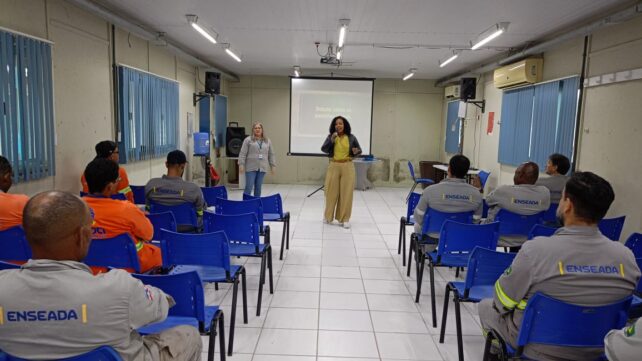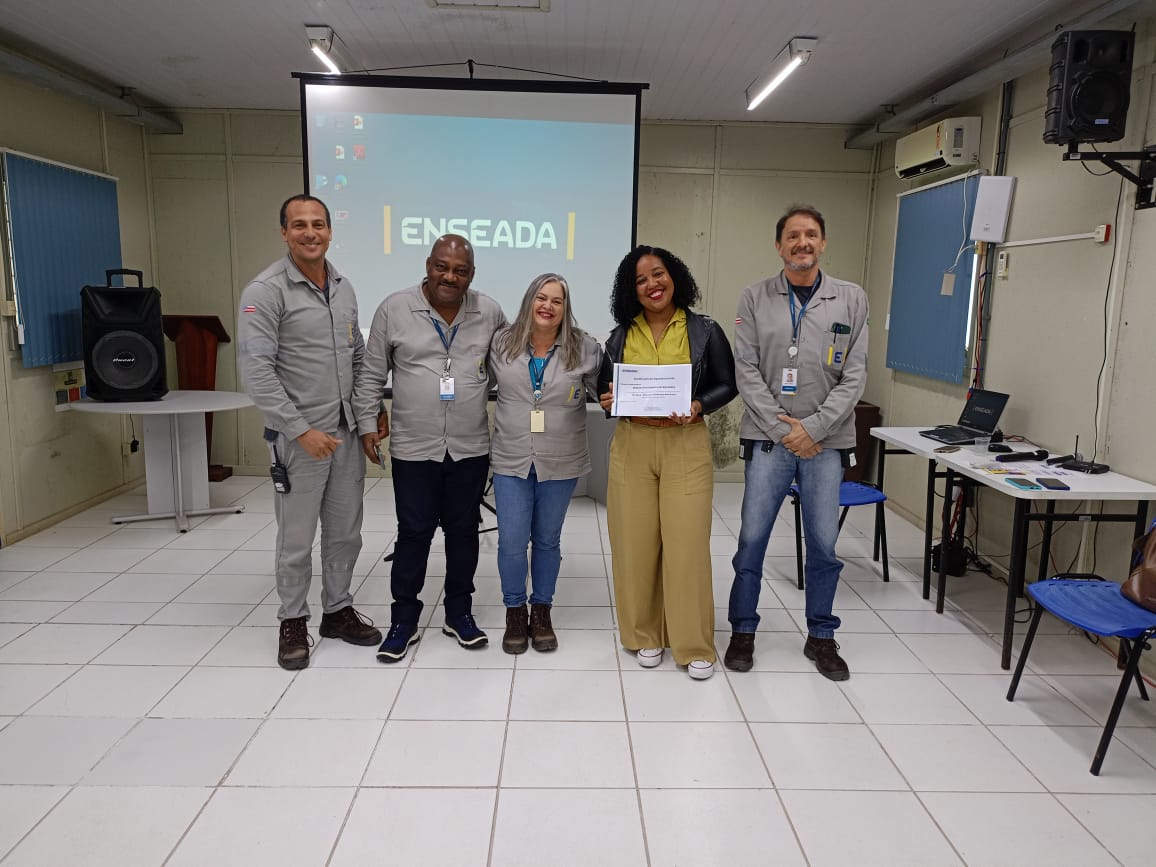Enseada Indústria Naval celebrates another important advance in its socio-environmental responsibility agenda through a strategic partnership with Lemos Passos,...
Quilombola and anti-racist education is the theme of Enseada’s TDT
DATE: 08/14/2024

During the environmental licensing process, the Palmares Cultural Foundation emphasized in its approval for the construction of the shipyard that it was important for Enseada to take steps to disseminate information about the quilombos of Maragojipe and their main cultural aspects among the workers, through regular activities that contribute to valuing and strengthening the ethnic and socio-cultural aspects of these communities in the vicinity of the Enseada project.
On July 25, as part of its Environmental Education Program for workers, Enseada held an interactive talk entitled “Quilombola and anti-racist education”, given by Emanuela Araújo, historian and coordinator of Quilombola Education in Maragojipe. Held during the Daily Work Training (TDT), 55 members and employees from partner companies, service providers and clients took part in the activity.
The International Day of Black, Latin American and Caribbean Women, celebrated annually on July 25, was also discussed. In Brazil, the date honors Teresa de Benguela, a black heroine who led the Quariterê quilombo in Mato Grosso do Sul.
For Emanuela Ramos, Maragojipe’s Coordinator of Quilombola Education, the event represents:
“I feel honored first of all, and as I always open my speeches by saying, it’s always a revolutionary act when a black woman has a microphone in her hand, because unfortunately black women are at the bottom of the social pyramid in Brazil and also in the world. So it’s extremely significant for me, even more so today, to talk about the importance of the debate on anti-racist issues in our municipality. We are all historical subjects and we are also educators, so it’s important that they take the importance of the anti-racism debate into their homes, into their social circles, not only from an educational perspective, but also within the family and the community in which they live, and that they take it into the company as well and learn to respect racial or gender diversity. I congratulate you, the Enseada company, on this very important social contribution to your employees. We can’t exercise our full citizenship if our rights are being corrupted in some sector, as an educator I feel extremely honored to participate and I celebrate your material as ancestral writing, a treasure that was exposed in oral history and legitimized in written history, I hope you continue to support projects that foster literature, especially black and anti-racist literature that is still somewhat unfeasible in our country.”
According to Emanuele, it is important to note that even with the enactment of federal laws 10.639/03 and 11.645/08, which make the teaching of Afro-Brazilian and Indigenous history compulsory, only 30% of schools actually implement this content in their curricula.



No comments